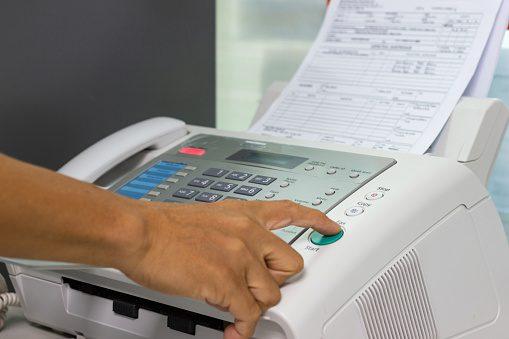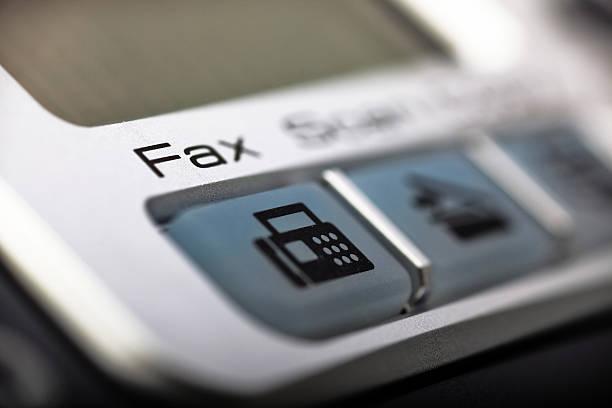
Fax Machines Remain Alive and Well—Here’s Why
Imagine a modern corporate office or a sleek home office. You probably see ergonomic chairs, multifunction printers or compact copiers—but not fax machines. That makes sense. After all, does anyone still use fax machines in this day and age? But the truth is thousands of businesses and organisations still fax pages each day.
The surviving role of the fax machine in the digital world
As email and other digital communications improve, fax printer machine usage fades. It seems counterintuitive to send a facsimile when you can scan or even take a photo of a document and send it via email, Messenger or other apps.
Plus, it didn’t help that the NBN rollout in the past decade had led to the disconnection of PSTN and ISDN fax lines. But that doesn’t mean businesses in Australia have stopped faxing. Some still do—and they do it digitally.
Some businesses replaced their old fax system with a cloud-based fax service. This virtual fax solution allows users to send and receive faxes as electronic documents. It processes faxes as images or PDF files and then transmits these documents over telephone lines or the internet, depending on the fax system the recipient uses.
In a way, fax machines continue to play a role in the digital world. But even if some companies have switched to virtual fax solutions, other businesses will likely stick to using their often-reliable fax printer machines until they fully digitalise their processes.
Fax’s longevity and the case of electronic signature
Fax’s longevity benefits from the reluctance of several industries to accept email and electronic signatures as valid. In Australia, the law generally recognises contracts signed through electronic means. But there are specific areas of the law that can prohibit electronic signing: deeds, witnessing and signing by companies.
For the longest time, law firms and courts have relied more on faxes than emails to safeguard against fraud. That only changed in the past year because of the COVID-19 pandemic. For instance, Victoria has allowed the electronic signing of deeds and audio-visual witnessing to address the mobility issues and healthcare requirements brought by the pandemic. In New South Wales, the legislation that allowed remote witnessing temporarily during the lockdown is now a permanent feature. But the remote signing of documents must be witnessed in real-time, and the witness must prove they were signing an exact copy of the file they sent digitally.
Even if some jurisdictions gradually accept electronically signed documents as legally binding, some lawyers and law firms may still prefer the traditional signing methods. That’s why it’s safe to say that the use of fax machines is here to stay.
Hospital systems help keep fax machines alive, too.
In 2019, there was a desperate call for hospitals in Canberra to leave the fax machines behind and start using medical record-keeping software instead. But there were many reasons behind the hospital systems’ reluctance to forgo faxing records.
For one, fax machines work—no matter what digital record-keeping software each hospital uses. It serves as a simple workaround when one hospital’s software couldn’t communicate with another hospital’s proprietary software. Fax machines will remain alive in hospitals as long as there are glitches & software compatibility issues.
Also, fax is deemed more secure than email and cloud-file sharing methods. Data breaches happen, and valid email addresses and passwords can be leaked anytime. That risk isn’t present in fax machines. Plus, fax machines are relatively simple to isolate from other devices in the event of a hospital-wide data security breach.
So when it comes to preserving medical confidentiality, many hospitals continue to rely on fax machines. They may adopt digital record-keeping software, but they will still likely keep their fax machines. Expect them to use fax machines not merely as a backup but also to combat software compatibility and data security issues.
Using fax machines also means clinging to what’s familiar.
Other than keeping fax machines as backups in case of online technical problems, there’s a personal factor behind the continuous fax machine usage. For some businesses & individuals, it’s all about clinging to what’s familiar. If they can easily print and send documents using their multifunctional printers with a fax capability, why do they need to bother and try new technology? Why spend time and money on adopting digital communication software that they might not fully maximise?
Amid the digital revolution, there’s still a space—albeit small—for users who continue to embrace old but familiar technology. And for that reason alone, fax machines have managed to remain alive and well today.
Don’t let your fax machines go obsolete.
Are you one of those businesses that continue to enjoy the benefits of a fax machine? Keep Printer Repair Centre’s contact number on hand. We’re here to help in case your fax machine (or a multifunction printer with a fax capability) malfunctions. Our technical experts are trained to fix any defect in printer and fax machines.
Our fax machine repair covers all makes and models. We also provide same-day service. If you place a call before 9 AM, we can send a technician to your site on the same day. Don’t worry if the repair requires additional time, as we provide a free loan machine while we fix yours. That’s our way to help minimise disruptions to your business operations
Contact us today to request a fax machine repair in Sydney.




